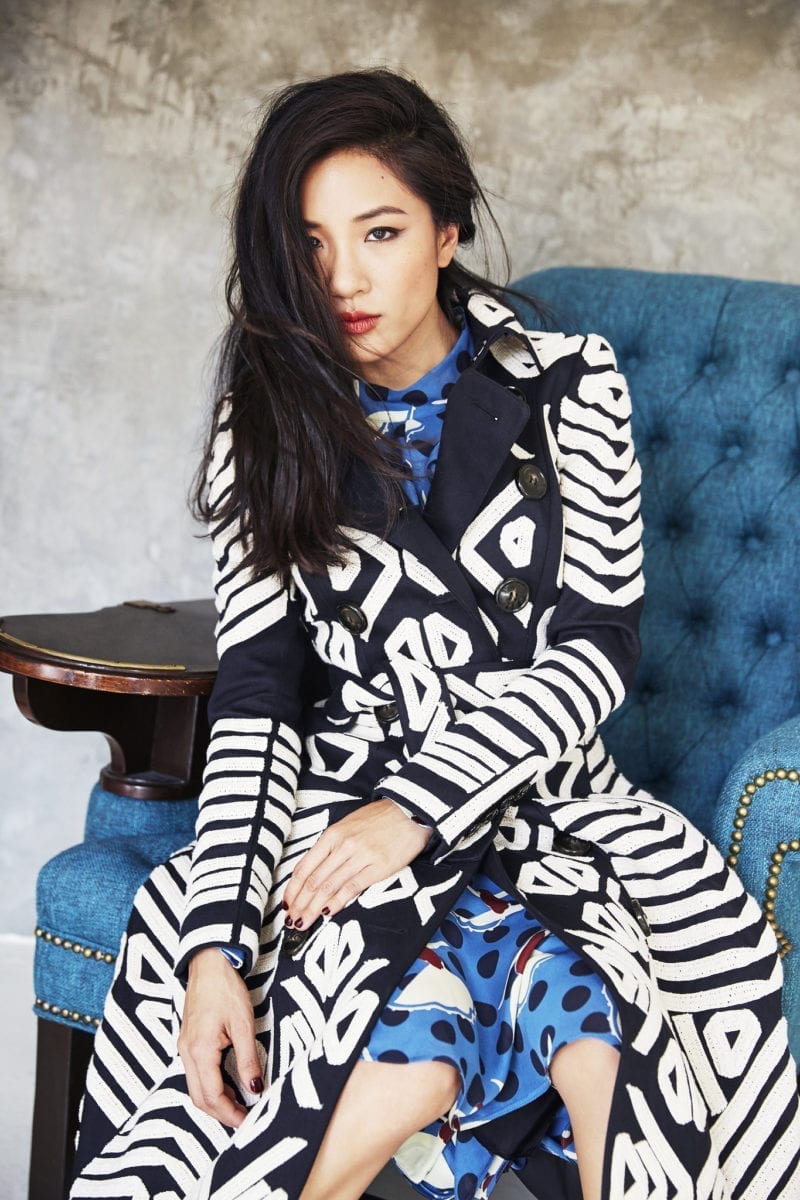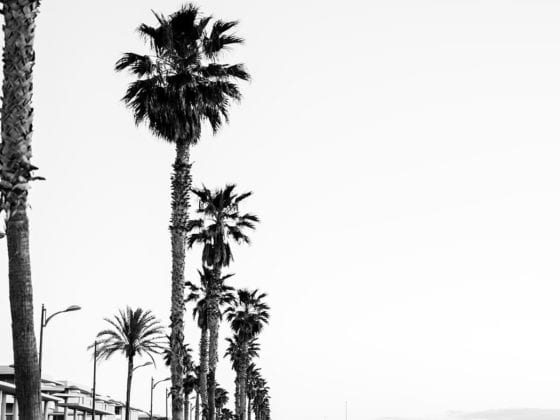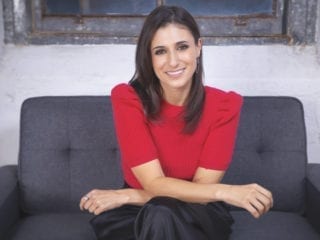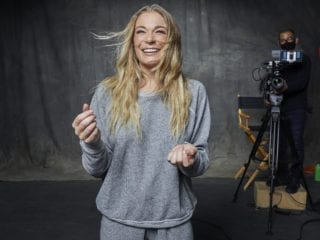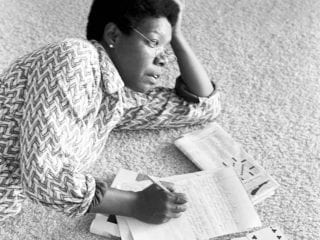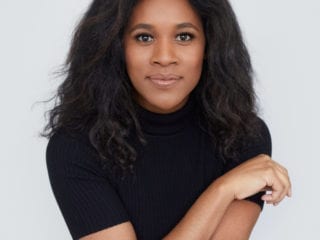This article was originally written by Constance Wu for Darling Print Issue No. 17.
As a kid, whenever I went to plays, watched movies or read books, it wasn’t the beautiful girls or the cool guys who inspired me. Honestly? It was embarrassing stories of complex people with difficult feelings. Feelings that I too was feeling but too scared to admit, making me feel very alone and very lonely. Writers or actors who were brave enough to be real, un-pretty, messy, scared and vulnerable, it was those stories that told me: You are not alone.
Growing up as a Chinese American girl in the predominantly white suburbs of Richmond, VA, I always felt a certain unplaceable level of discomfort. To compound that, I was prohibited from examining this discomfort because Richmonders truly are the nicest people you’ll ever meet, and we all used to think that racism and sexism did not exist when people are nice. (I have since found this to be unfortunately untrue.)
We all used to think that racism and sexism did not exist when people are nice.
This discomfort and the ensuing prohibition from examination of the discomfort made me go internal. It must be my fault. I was flawed or crazy. And while I wouldn’t wish that feeling on any child, it did activate me to make sure I worked diligently and thoroughly to “earn” my place in the world. How sad is it that it never occurred to me then that I should be able to be in the world, just by being in it, rather than by earning it. That easy confidence of self and place didn’t come intuitively to me, as it did to my friendly Southern neighbors.
Then, after 10 years of grueling hard work and devastating rejections, I became an “overnight success” as the star of the first Asian American network sitcom in more than two decades. At first, when asked to speak on Asian American representation in media, I shrank from it. Suddenly, here was the issue that I had been internally transforming into self-blame my whole life, and I was suddenly being asked to speak on it. It was terrifying for me.
Up until that point, my denial and internalization had made me believe that there weren’t any issues for Asians. Because I thought they were all my own personal issues. While that may sound naive, one need only look at the narrative content in the room in which they are currently sitting.
Is there even one children’s book with an Asian American girl protagonist? How many magazines have Asian Americans on the cover? Novels? Movie posters?
Is there even one children’s book with an Asian American girl protagonist? How many magazines have Asian Americans on the cover?
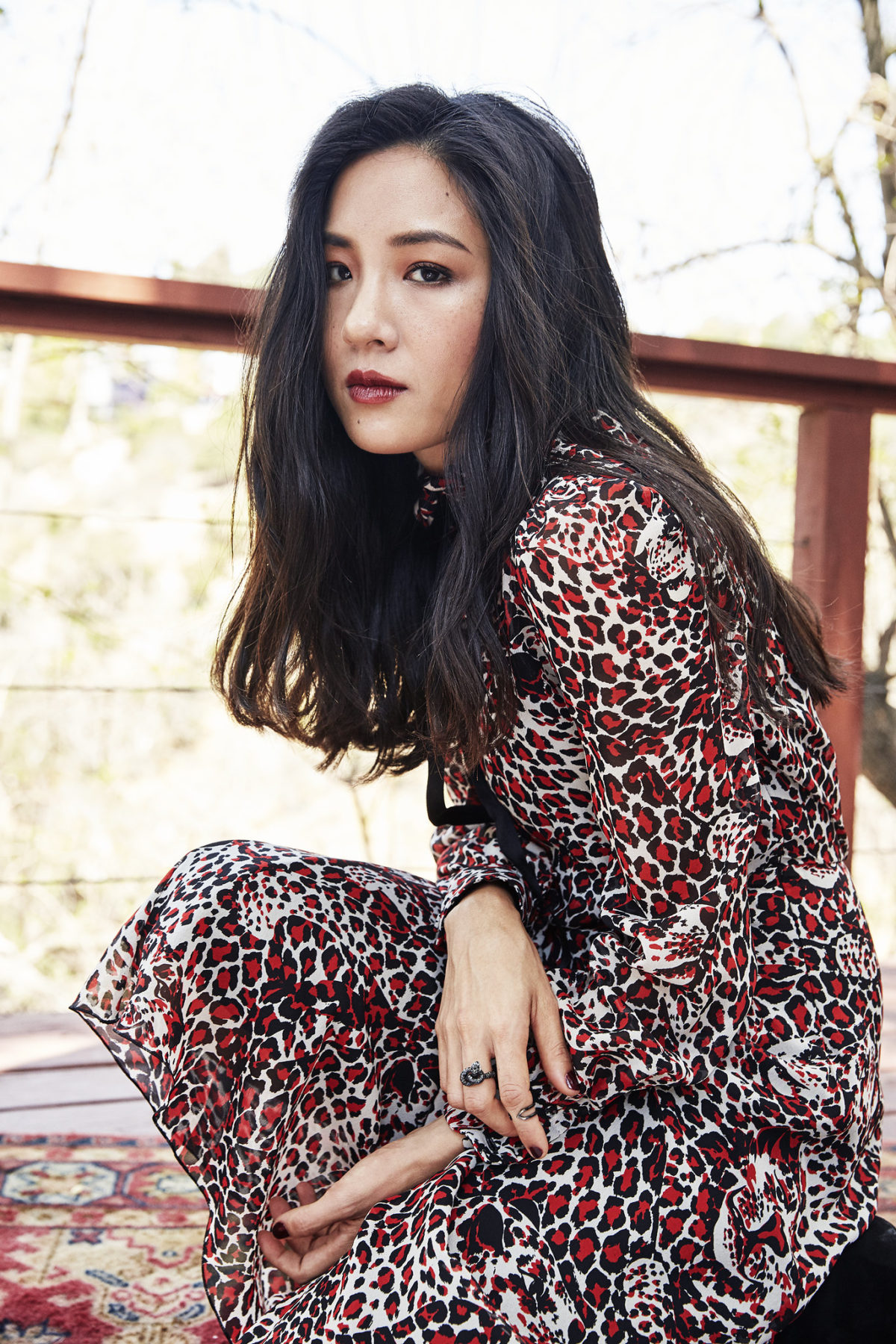 The answers are low, and so were my resources. Therefore, so was the implicit ceiling of my imagined potential. But I honestly believe, if you’re lucky enough to, say, have a network television show that prompts you to speak about uncomfortable things, then it is not only your duty, but it is also your privilege to use that power for good and to use it smartly.
The answers are low, and so were my resources. Therefore, so was the implicit ceiling of my imagined potential. But I honestly believe, if you’re lucky enough to, say, have a network television show that prompts you to speak about uncomfortable things, then it is not only your duty, but it is also your privilege to use that power for good and to use it smartly.
So I began to read about Asian American identity and about race relations in America. I began to read blogs, books, journals and magazines. I began to engage some of my work friends—humbly listening, asking embarrassing and uncomfortable questions.
From all that self-initiated knowledge-seeking, a miraculous thing happened. All the discomfort I had felt as a child, that I had thought I was crazy for feeling, that I hadn’t expressed, all of it suddenly had language. Having the language for it and the voice to speak it, freed me.
My career choices no longer became about personal fulfillment, but about, well, service. How can I best serve that little Asian American girl inside of me who feels all alone and has no language to describe her feelings? How does that serve many little Asian American girls right now?
Even in playing my role in “Fresh Off the Boat,” it would be very easy to just know my lines, hit the jokes and be delightful in interviews—to do “just enough”—but I wanted to do more with it. I wanted to make her a complex human. I wanted to avoid the easy jokes in favor of truth (which is always funnier, in my opinion).
I wanted to use my interviews to raise uncomfortable issues, not to make people feel discomfort, but because stretching our imaginations and extending our dialogues about race is as good for our hearts as is exercise. It’s also just as strenuous and fatiguing. However, that fatigue is how you know you’re working. If it’s too easy, then you’re not going to get results.
Stretching our imaginations and extending our dialogues about race is as good for our hearts as is exercise.
The same thing can be said for creating difficult characters in TV and film. When we watch one-dimensional characters who are easy to predict (i.e. stereotypes), I think we not only expect little of them, but we are forming a world that doesn’t exist in real life. In reality, we all have complicated families, backgrounds, motivations and difficulties. That kid who was always the class clown? His parents might have been going through a bad divorce. He just didn’t tell you because that’s not how he coped with it.
When we marginalize or narrow the way that characters can be seen or understood in TV, we marginalize our own imaginations of human potential. That’s why it is important to me that I study the people who I portray. Human stories must be honored in a way that is greater than a quick laugh or a snap judgment. And sure, in a 30-second commercial or a two-minute trailer of my TV show, it might seem like we just hit the easy beats…that’s why it’s a trailer. That changes when you watch the show in its entirety.
I honestly believe that the reason “Fresh Off the Boat” is going into its third, critically acclaimed season is because we do the hard work of creating complexity out of what could have been one-dimensional. In preparing for my role playing Jessica Huang on “Fresh Off the Boat,” I make a concerted effort to understand the life that informed the behavior. I try to show the vulnerability of Jessica and the anger and frustration when she doesn’t feel heard. When she does feel heard, it’s showing how that anger melts away, and there’s nothing but gratitude and love.
That’s the key to connection for her. She, like us all, is a complex person. I want to show Asian American characters not in a good light, but as whole human beings, with the good, the bad and the ugly.
I want to show Asian American characters not in a good light, but as whole human beings, with the good, the bad and the ugly.
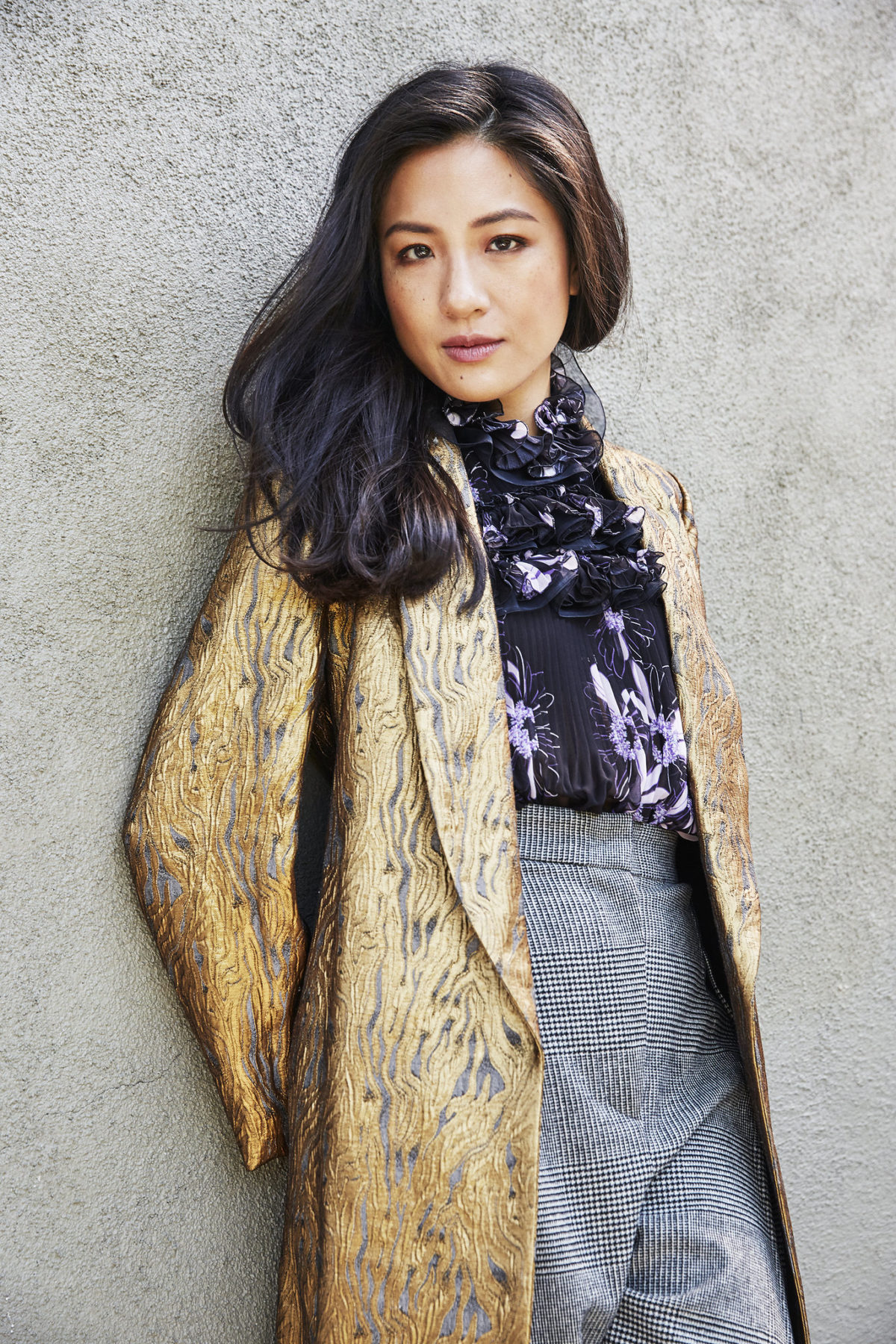 In the midst of all this, it’s my privilege to be able to explore characters who want to show their Asian identity as opposed to just wanting to be the race-less “beautiful girl” in a romantic comedy. After all, identity informs experience, and race is a part of identity. It’s something of which to be proud.
In the midst of all this, it’s my privilege to be able to explore characters who want to show their Asian identity as opposed to just wanting to be the race-less “beautiful girl” in a romantic comedy. After all, identity informs experience, and race is a part of identity. It’s something of which to be proud.
I hope to change that narrative of Asian Americans into one of pride. I hope we become proud of our parent’s accents because it means they know two languages! I hope we become proud of our different cultural upbringing because it creates our compassion for different immigrant experiences.
I’m very grateful for my opportunities as an actress, but I never want the gratitude to lead to complacency or materialism. Anytime where I’ve been seduced into the “stuff” that surrounds what I do instead of the actions of what I do, it’s fun for a while but it’s like a manic type of fun. The “stuff”—parties, clothes, praise and materialism—is not something that you can generate from within. Therefore, even if you’re happy, you’re slightly afraid that you’re going to lose it. Therefore, it’s a panicked type of happiness, and it feels unstable and bad to me.
Identity informs experience, and race is a part of identity. It’s something of which to be proud.
I prefer the type of happiness and meaning that’s generated from within: from your friends since childhood, your big sister, from acts of service, from standing up for people, from exploring nature or literature. Because people can’t take that away from you! They can take away your car. They can take away your job. They can take away your money, but they can’t take away your ability to create something, internally, that’s meaningful and worthwhile.
I know a lot of people tire of the conversation surrounding diversity. Listen, it sucks that I get asked about being an Asian American actress in literally every interview. While white actors rarely get asked, “What’s it like being a white actor?” No, they just get to talk about acting. So yes, it’s tiring. It’s fatiguing. It seems unfair that we Asian actors should have to do it. I’m sure a lot of people are sick of it.
But I’ve learned that just because something’s fatiguing doesn’t mean it’s bad. It’s like that great quote from “A League of Their Own” where Geena Davis says, “That’s it. I’m quitting baseball! It just got too hard.” And Tom Hanks says, “Of course it’s hard! If it wasn’t hard everybody would do it, but it’s the hard that makes it great!”
Fatigue isn’t an excuse for inaction. All the stories that move us, not even just narratively, but politically and historically, are people going through the hard stuff. That’s what happens when you care and that’s what happens when you care about something greater than yourself.
Fatigue isn’t an excuse for inaction.
I have the luxury of choosing an occupation based on desire, not on survival. Why am I, why are we Americans, so lucky to have choice? I can see no other reason than that we are under some sort of special obligation to make good use of it.
Art exists to help us create meaning in our short time on this planet. It’s crucial. Because if the only reason we’re here is to make money, eat, have sex and die, that’s a squandering of our very good luck. Who we are and what we do expresses our humanity as a whole. When we are whole, we realize that we are not alone. That we are, very much, in this together.
Why is it important to not grow weary or “fatigued” of the conversation on race and diversity? What was your takeaway on Constance’s passion to show the diversity, complexity and beauty of Asian culture?
Article by Constance Wu, Images via Kat Borchart, Darling Issue No. 17

